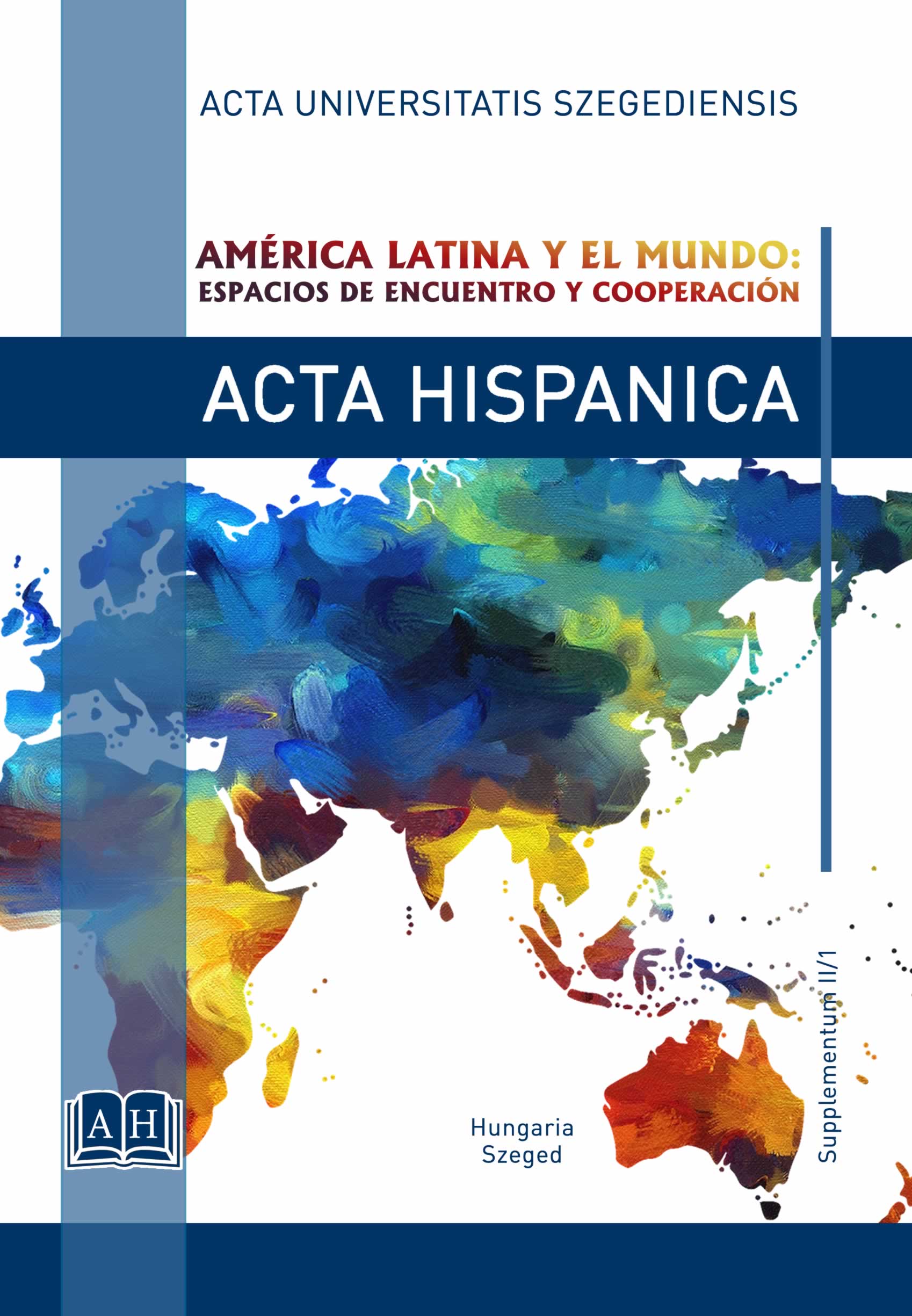Political Families: Narration, Memory and Healing in Cristina García’s Dreaming in Cuban
Contenido principal del artículo
Resumen
The paper interprets Cristina García’s novel Dreaming in Cuban against the backdrop of contemporary multicultural identity prose by women. Against expectations about the possibility of healing and belonging in the feminine diasporic text, the novel problematizes the possibility and costs of healing, reconnecting, and reconciliation. The text represents how profoundly political and family history are interconnected on an individual level, and how the intersection of family, politics, and individual limits the scope of change for the protagonist.
Descargas
Detalles del artículo
Citas
Alvarez, Julia (1992 (1991)). How the García Girls Lost Their Accents. New York: Plume.
Anderson Sasser, Kim (2014). Magical Realism and Cosmopolitanism: Strategizing Belonging. London: Palgrave Macmillan.
Bollobás, Enikő (2005). Az amerikai irodalom története. Budapest: Osiris.
Cisneros, Sandra (1991). Woman Hollering Creek and Other Stories. New York: Random House.
Cisneros, Sandra (1989(1983)). The House on Mango Street. New York: Vintage.
Cristian, Réka Mónika (2015). Home(s) on Borderlands and Inter-American Identity in Sandra Cisneros’ Works. Americana, 11/1. Available at: http://americanaejournal.hu/vol11no1/cristian, access date: 25-10-2019.
Davis, Rocío G. (2000). Back to the Future: Mothers, Languages, and Homes in Cristina García's Dreaming in Cuban. World Literature Today, 74. 60-68.
Kingston, Maxine Hong (1976). The Woman Warrior: Memoirs of a Girlhood among Ghosts. New York: A. Knopf.
Kovács, Ágnes Zsófia (2019). Black is Beautiful: Black Atlantic Experience and the Black Female Body in Toni Morrison’s God Help the Child (2015). In: Cristian, Réka Mónika –Dragon, Zoltán – Lénárt, András (eds.). Transnational Americas: Home(s), Borders and Transgressions. Szeged: AMERICANA eBooks, 2019. Available at: http://ebooks. americanaejournal.hu/books/transnational-americas/, access date: 15-10-2019.
Mohácsi, Eszter Enikő (2019). Possibilities of Being Home on American Soil: The Concept of Home in Toni Morrison’s Novels. In: Cristian, Réka Mónika – Dragon, Zoltán – Lénárt, András (eds.). Transnational Americas: Home(s), Borders and Transgressions. Szeged: AMERICANA eBooks, 2019. Available at: http://ebooks.americanaejournal.hu/books /transnational-americas/, access date: 15-10-2019.
Morrison, Toni (1987). Beloved. New York: A. Knopf.
Pettersson, Inger (2013). Telling it to the Dead: Borderless Communication and Scars of Trauma in Cristina García's Dreaming in Cuban. Journal of Literary Studies 29/2. 44-61. DOI: 10.1080/02564718.2013.777143.
Roszak, Suzanne Manizza (2017). Blurring Boundaries: Women’s Work and Artistic Production in Jamaica Kincaid’s Lucy and Cristina García’s Dreaming in Cuban. Lit. Literature, Interpretation, Theory, 28. 275-295. DOI: 10.1080/10436928.2017.1379844.
Tóth, Zsófia Anna (2019). Borderlands and Humorous Transgressions in Machete (2010) and Machete Kills (2013). In: Cristian, Réka Mónika – Dragon, Zoltán – Lénárt, András (eds.). Transnational Americas: Home(s), Borders and Transgressions. Szeged: AMERICANA eBooks, 2019. Available at: http://ebooks.americanaejournal.hu/ books/transnational-americas/, access date: 15-10-2019.





